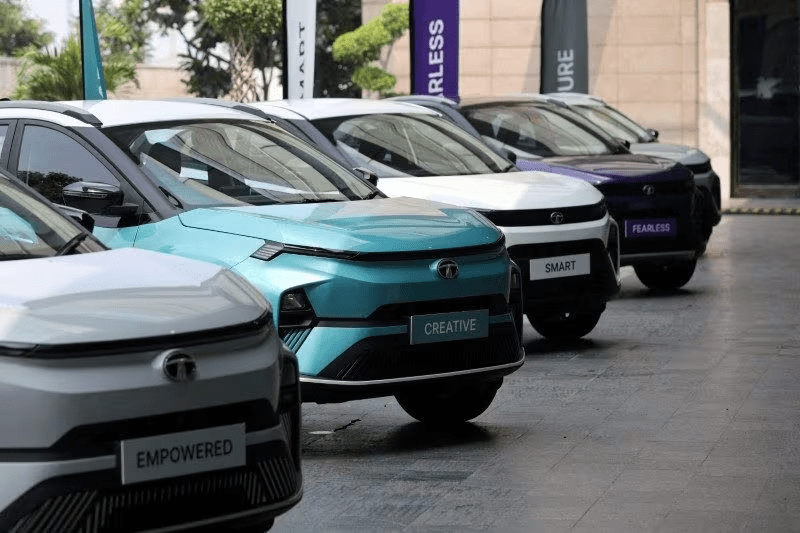In Short : Tata Motors emphasizes that addressing air pollution and reducing oil imports can be effectively achieved through the exclusive use of zero-emission cars. The statement underscores the company’s commitment to promoting environmentally friendly transportation solutions as a key strategy for sustainable and cleaner mobility.
In Detail : Only zero emission cars can contribute towards a reduction in air pollution, cutting burgeoning fuel imports and attaining net zero targets, according to Tata Motors Passenger Vehicles Managing Director Shailesh Chandra.
Amid demands from a certain section of the industry to cut taxes levied on hybrid cars, Chandra said that such vehicles do not align with the key national objectives of achieving net carbon-zero target, improving air quality levels, and reducing fossil fuel imports.
He noted that hybrid and CNG technologies in cars help in improving fuel efficiency and meeting emission-related regulatory compliances but cannot be compared with pure battery electric vehicles.
In an interaction with PTI, Chandra said that the government already supports hybrid vehicles in terms of lower taxation and there is no need to bring those at par with electric vehicles.
He noted that hybrid cars cannot be compared with EVs as they essentially run on polluting “fossil fuel”.
Chandra said that there is a push to give hybrids “unnecessary status” as compared with EVs. The government however has been very supportive and firm regarding the support to the EVs, he added.
The total tax incidence on hybrid vehicles in the country is 43 per cent, which is inclusive of GST, while battery electric vehicles attract a tax of about 5 per cent.
Domestic automakers like Tata Motors and Mahindra & Mahindra are focussing on battery electric vehicles while Japanese automakers like Toyota, Suzuki and Honda are betting on hybrid technology in their cars in the domestic market. A hybrid car has more than one source of power. Usually, it combines a conventional combustion engine with an electric motor to run the vehicle.
“The hybrid is actually a fossil fuel vehicle which is being presented as an EV because it uses a motor and a miniscule battery pack. Essentially it uses fossil fuel as the energy source,” Chandra said.
He further said: “Why should there be a differentiated treatment for a fossil fuel-based technology”.
The only way the automotive industry can contribute towards helping the nation in countering air pollution, fuel imports and net zero targets is by supporting the zero-emission technology, he added.
“We (EV makers) need the support, which is being given because of a very high technology cost. Also, there is a lack of a complete ecosystem of supplies, and charging infrastructure. We need to develop all this for a long-term play,” he stated.

